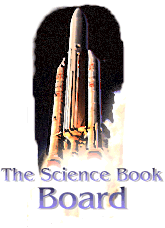![]()
 |
|
|
|
If you wish to purchase further titles already reviewed here, please return each time to SBB. Using the direct links available at our site is easier than searching by title, author, or ISBN number.
EDITORIAL INFORMATION Since Disturbing the Universe, the book that first brought him international renown, Freeman Dyson has been helping us see ourselves and our world from a scientist's point of view. In Imagined Worlds he brings this perspective to a speculative future to show us where science and technology, real and imagined, may be taking us. The stories he tells-about "Napoleonic" versus "Tolstoyan" styles of doing science; the coming era of radioneurology and radiotelepathy; the works of writers from Aldous Huxley to Michael Crichton to William Blake; Samuel Gompers and the American labor movement-come from science, science fiction, and history. Sharing in the joy and gloom of these sources, Dyson seeks out the lessons we must learn from all three if we are to understand our future and guide it in hopeful directions. (Extracted from the dust jacket).
GENERAL TABLE OF CONTENTS
OUR REVIEW Freeman Dyson is well known thanks to his spectacular technological proposals, capable per se of awakening the reader's imagination, as well as prompting scientific research in certain fields. This new book by Dyson, Imagined Worlds, continues on the path of prospective that is so typical of him, showing us a more or less near future, based on the progress that already now we can expect in the different areas of science and technology. The origin of the contents of this book is a series of lectures held by the author in 1995 at the Hebrew University of Jerusalem, sponsored by this university as well as the Harvard University Press. Dyson utilizes the narrative to describe in a pleasant, entertaining way, in only five chapters, what we can expect from science, technology, and even ethics and evolution, as the years go by. There are some concepts very much in fashion nowadays, such as the atmospheric warming or overpopulation, that Dyson chooses to ignore: he simply has nothing else to add to that. The author wants to focus only on that which will no doubt make us think. |
|||
![]()
Main Page | What's New | Reviews | Indexes | Links